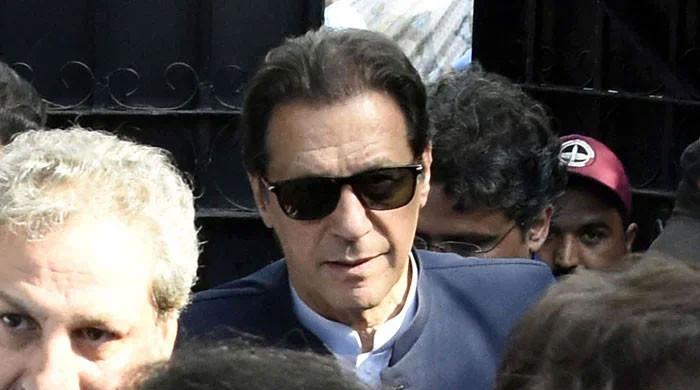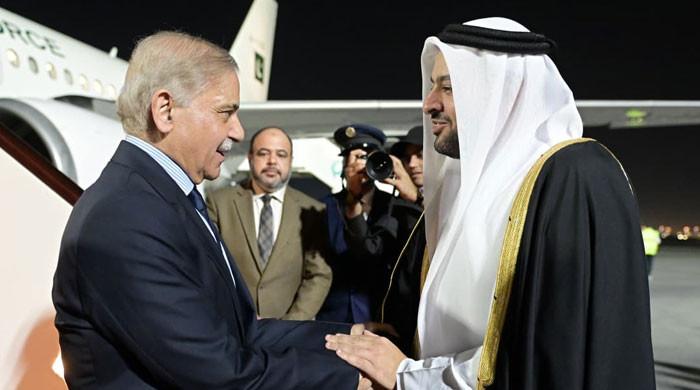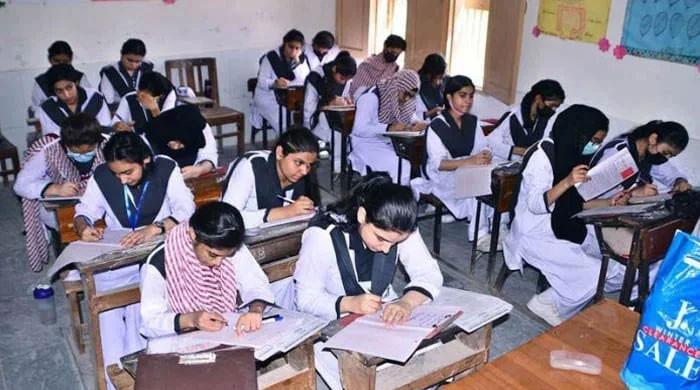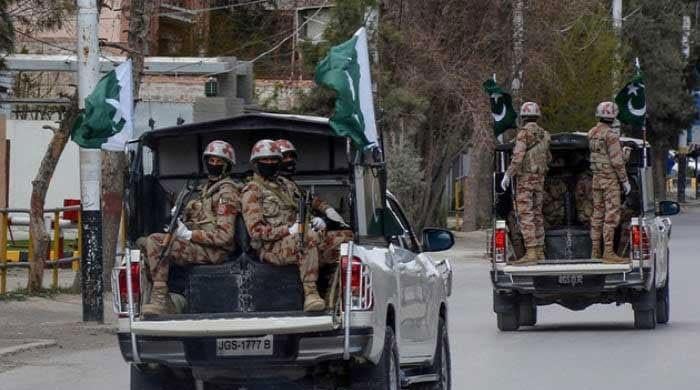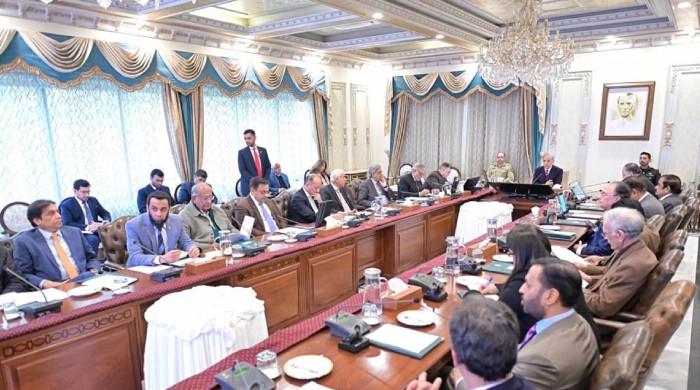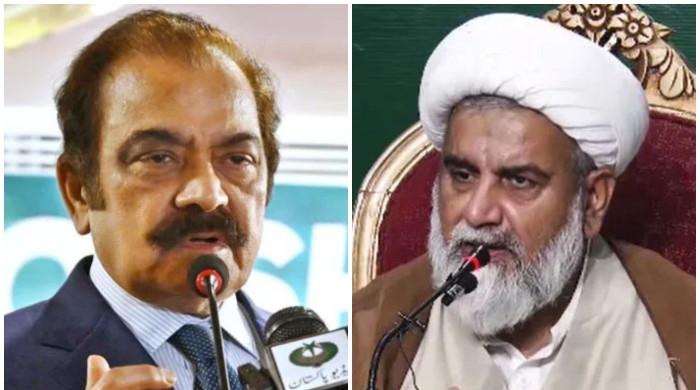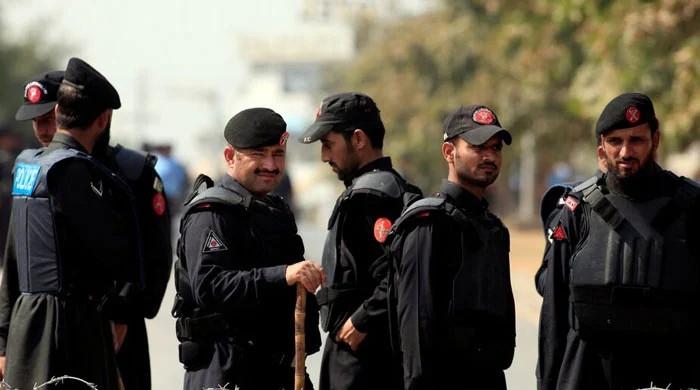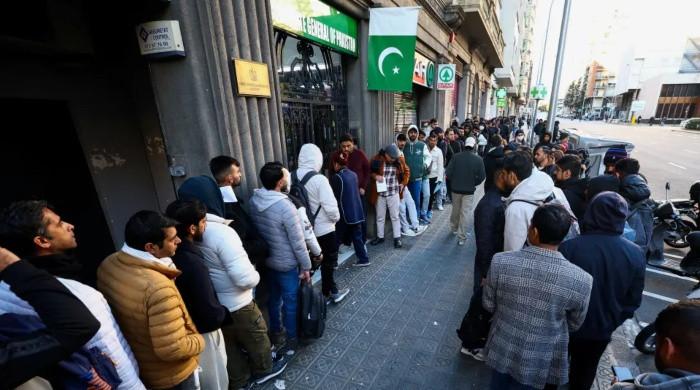Broadsheet agreement signed without getting approval from relevant depts: former NAB chief
Former NAB chief Lt Gen (retd) Syed Amjad says Broadsheet did nothing to bring back looted wealth from Pakistan
January 25, 2021
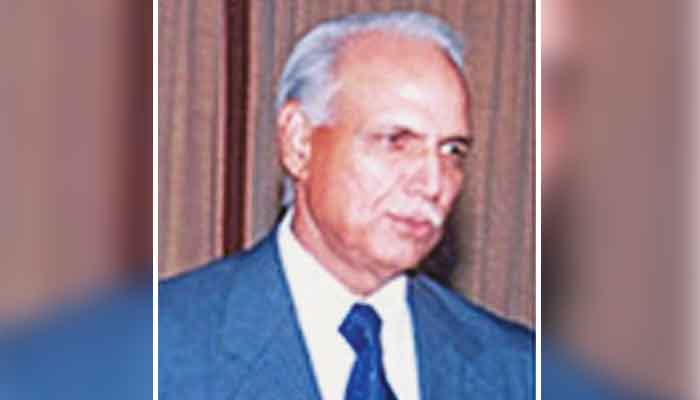
- Lt Gen (retd) Syed Amjad claims Broadsheet used information provided by NAB against targets mentioned by Pakistan.
- Former NAB chief says NAB prosecutor general's son used to work for one of the partners of Broadsheet.
- Broadsheet did nothing to bring back wealth looted from Pakistan, says Gen (r) Amjad.
LONDON: Broadsheet LLC did absolutely nothing to bring back ‘looted’ assets to Pakistan and lied and exaggerated about its capabilities to do so, according to the National Accountability Bureau’s (NAB) former chairman, retired Gen Syed Amjad, who had signed the contract with Broadsheet LLC on behalf of NAB.
Not only that, the Broadsheet contract was signed without necessary approvals being taken from the relevant ministries, and a son of the NAB prosecutor general at the time, Farouk Adam Khan, later secretly worked for a Broadsheet partner.
Hundreds of pages of correspondence between NAB and American asset recovery firm Trouvons (which later set up Broadsheet LLC in the Isle of Man), various court documents, and Gen Amjad’s testimony before Sir Anthony Evans, the arbitration judge at the London High Court, reveal the extent of the follies, mismanagement, and miscommunication involved in the whole saga.
According to Gen Amjad, Broadsheet “did next to nothing concrete to assist NAB in receiving assets outside Pakistan through their investigations”, failed to provide NAB with any useful information, and “failed to repatriate any assets back to Pakistan”.
Under the envisaged Agreement, NAB would have been responsible for prosecuting targets inside Pakistan and Broadsheet would be mandated to trace, find and repatriate assets back to Pakistan and receive 20% commission on repatriated assets at no additional cost to Pakistan.
According to Gen Amjad, Broadsheet failed to provide “the type of proofs of foreign assets” that Pakistan needed to successfully prosecute targeted individuals.
Gen Amjad also told the arbitration judge that the people at Broadsheet “were certainly not providing the level of assistance that we had been led to believe they would”.
Misleading representations
Court papers confirm that in October 1999, Gen Amjad became aware of GSA Investment Corporation and Trouvons through Tariq Fawad Malik and Ghazanfar Sadiq Ali, who represented the firms.
The men told Gen Amjad that Trouvons could assist NAB in the speedy recovery of assets that had been “corruptly obtained and secreted outside of Pakistan”.
They convinced Gen Amjad that an asset recovery arrangement with the firms would not cost Pakistan any money and all the firms would need was a power of attorney to initiate legal proceedings against the “targets”. Meanwhile, Pakistan would sit back and see billions of dollars brought back within months.
Gen Amjad subsequently visited the Colorado, USA office of Trouvons where he met Jerry James and Dr William Pepper as the main people behind Trouvons.
Jerry James and Dr Pepper persuaded General Amjad that they were exceptionally connected to the US, UK, and other jurisdictions and that they would be repatriating billions of ill-gotten assets for the benefit of the people of Pakistan.
They assured that Trouvons would fund all of the investigations and other efforts to recover assets.
Bad contract
After visiting Colorado, Gen Amjad tasked Farouk Khan to undertake negotiations on behalf of NAB and draft a “suitable agreement” stressing that the agreement should be only about “assets outside of Pakistan” and “not relate to assets inside of Pakistan”.
Gen Amjad signed the agreement with Broadsheet LLC, set up by Trouvons, on June 20, 2000, and with International Assets Recovery (IAR) on July 15, 2000.
According to Gen Amjad, he realised much later that he might have perhaps trusted Khan too much.
Gen Amjad said he had asked Khan to ensure that the agreement was vetted by the Ministry of Law and the Ministry of Finance, but Khan “failed to send the draft agreement to the relevant ministers” and “failed to obtain their approval”.
Instead, the Agreement left a major loophole open that eventually allowed Broadsheet to exploit the contract to claim 20% of all recoveries made by NAB even within Pakistan and even if it (Broadsheet) had no role in facilitating them.
It later transpired that Khan’s son was employed by David Orchard, who, along with Dr Pepper, advised Trouvons.
No real effort made
Gen Amjad said he gave an office to Broadsheet at the NAB offices at no cost to facilitate the recovery of wealth; gave full access to the information they needed; and provided all documents, including dossiers on PPP chief Asif Ali Zardari and Benazir Bhutto.
Amjad said that Pakistan also provided help to Broadsheet through the Federal Investigation Agency, the State Bank, NAB, and other organisations with the hope that Broadsheet and IAR would use this help as a springboard and trace assets in material and concrete aspects, but they realised soon that “Broadsheet seemed to have grossly misrepresented and exaggerated their competencies and resources with respect to their asset recovery programme”.
Broadsheet, he said in his witness statement, did not actively or consistently try to fulfill any of its obligations under the Broadsheet Agreement.
Gen Amjad served as NAB Chairman from November 16, 1999, to September 25, 2000, and retired from the services on December 27, 2002.




